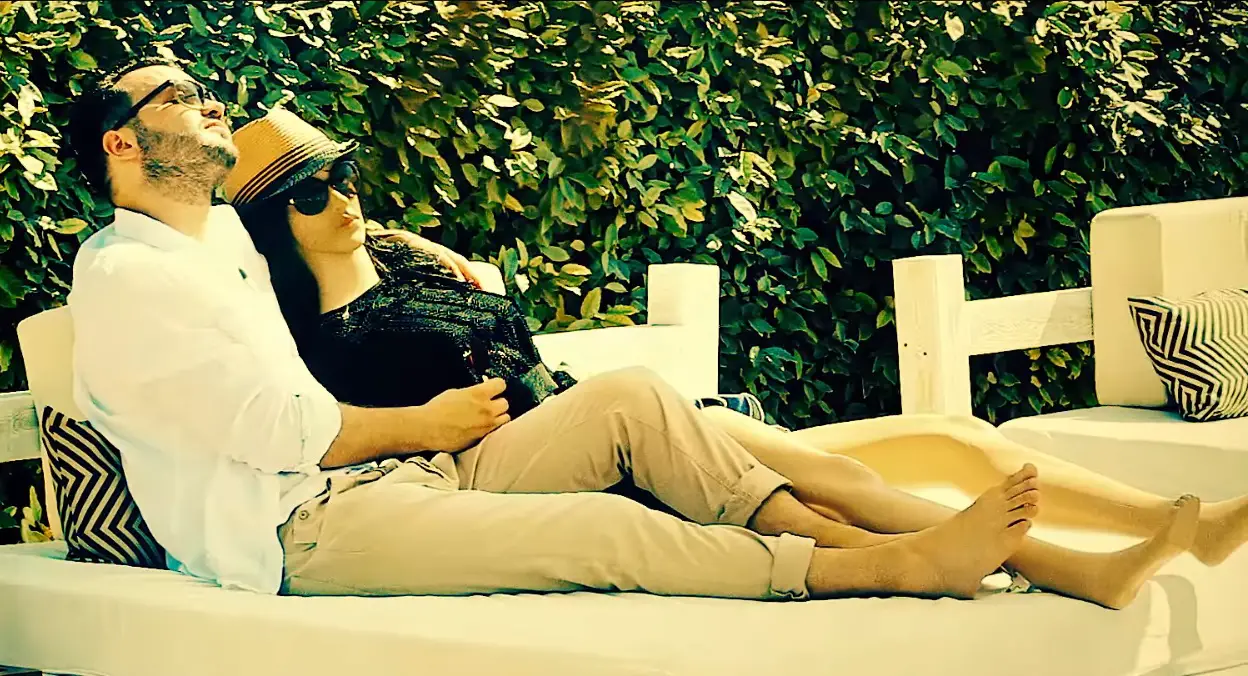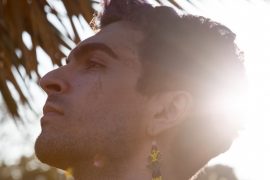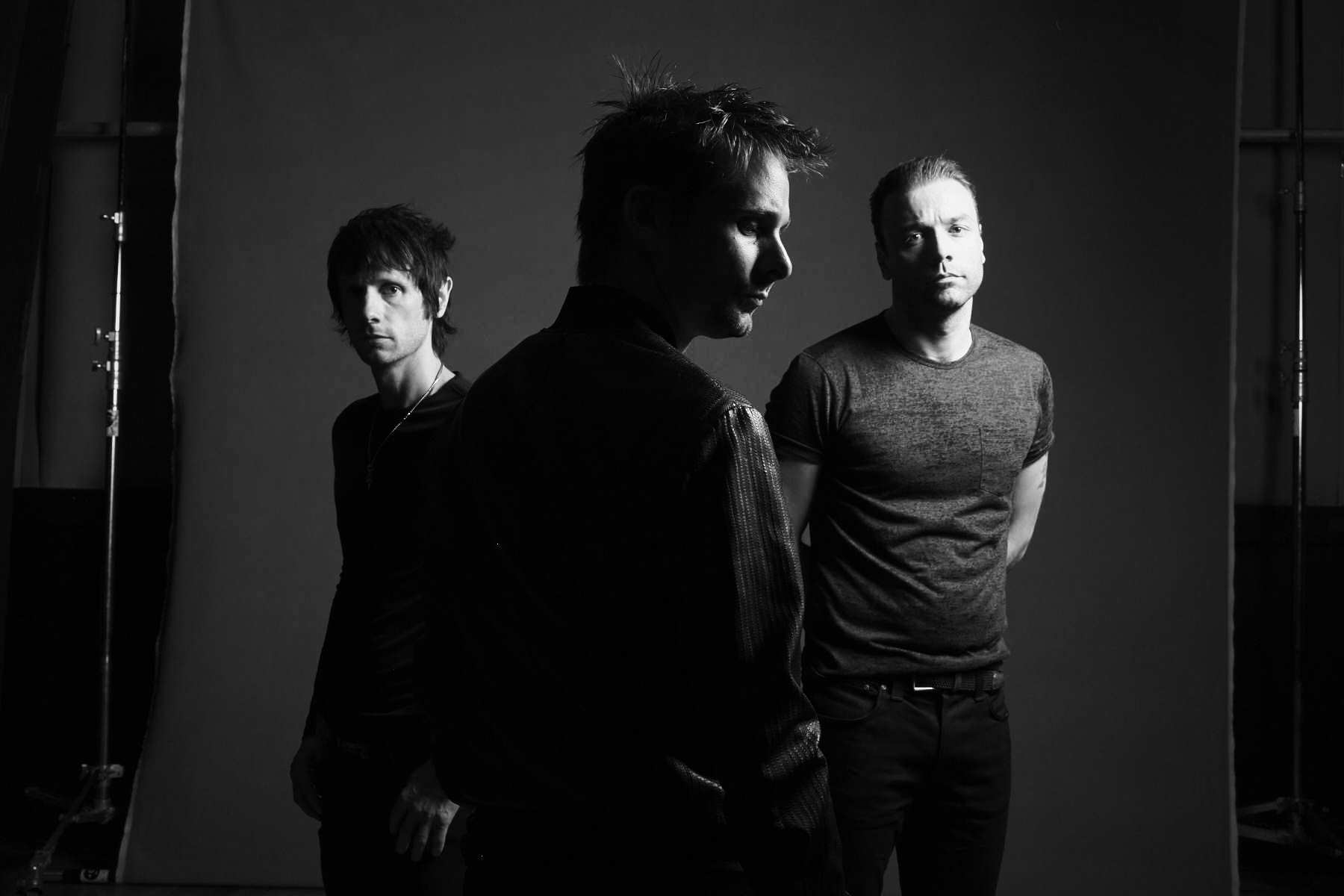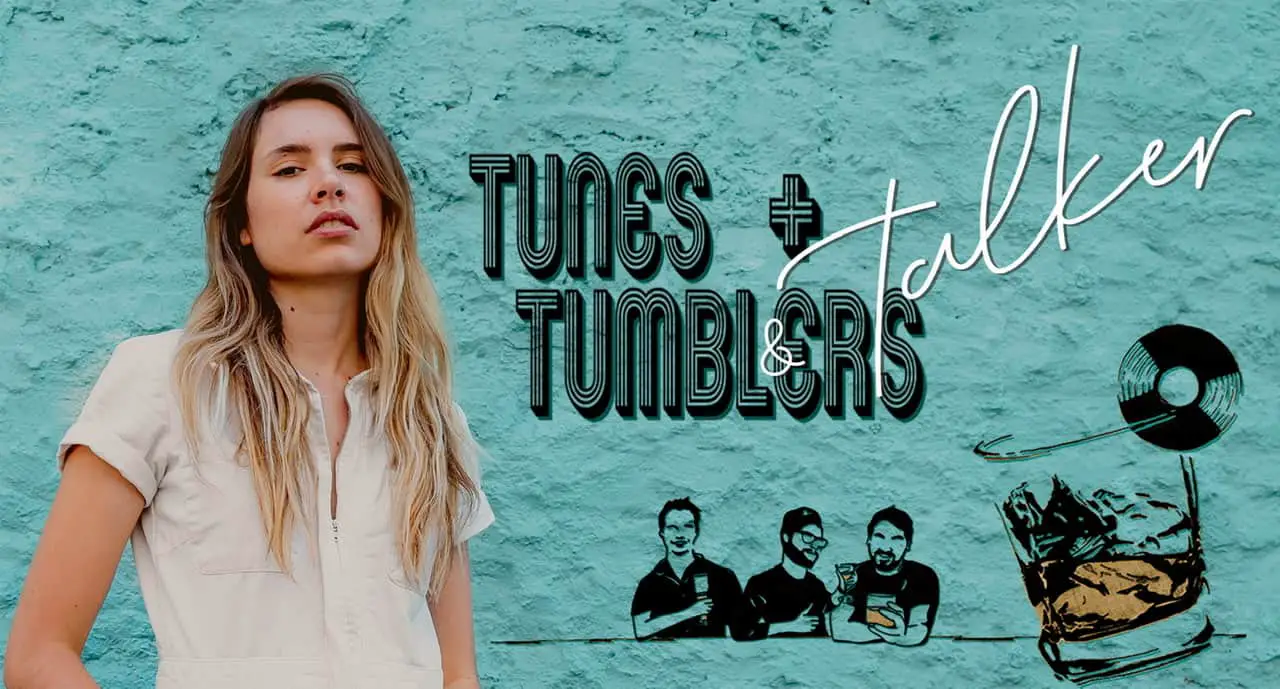‘Afro Appalachian’ singer/songwriter and artist-to-watch Mon Rovîa talks with Atwood Magazine about making music for peace and healing, shares a bit of his own story, and dives into his upcoming EP ‘Act 4: Atonement,’ the final chapter of his four-part folk saga about the hero’s journey.
Stream: “Winter Wash 24” – Mon Rovîa
I wash my hands; I believe we can achieve good things if you see you in me…
Mon Rovîa makes beautiful, soul-stirring folk that aches inside and out.
He writes songs of healing and human connection, singing from the heart with his soul on his sleeve.
“My music is meant to sound like an echo of the past,” the singer/songwriter smiles. “Being from Africa, and now living in the mountains of Appalachia, my music sits at an intersection of African and Appalachian sounds. I aim to help carry the history of the Africans who came over with some of the vital instruments that are now heavily integrated into the folk world.”
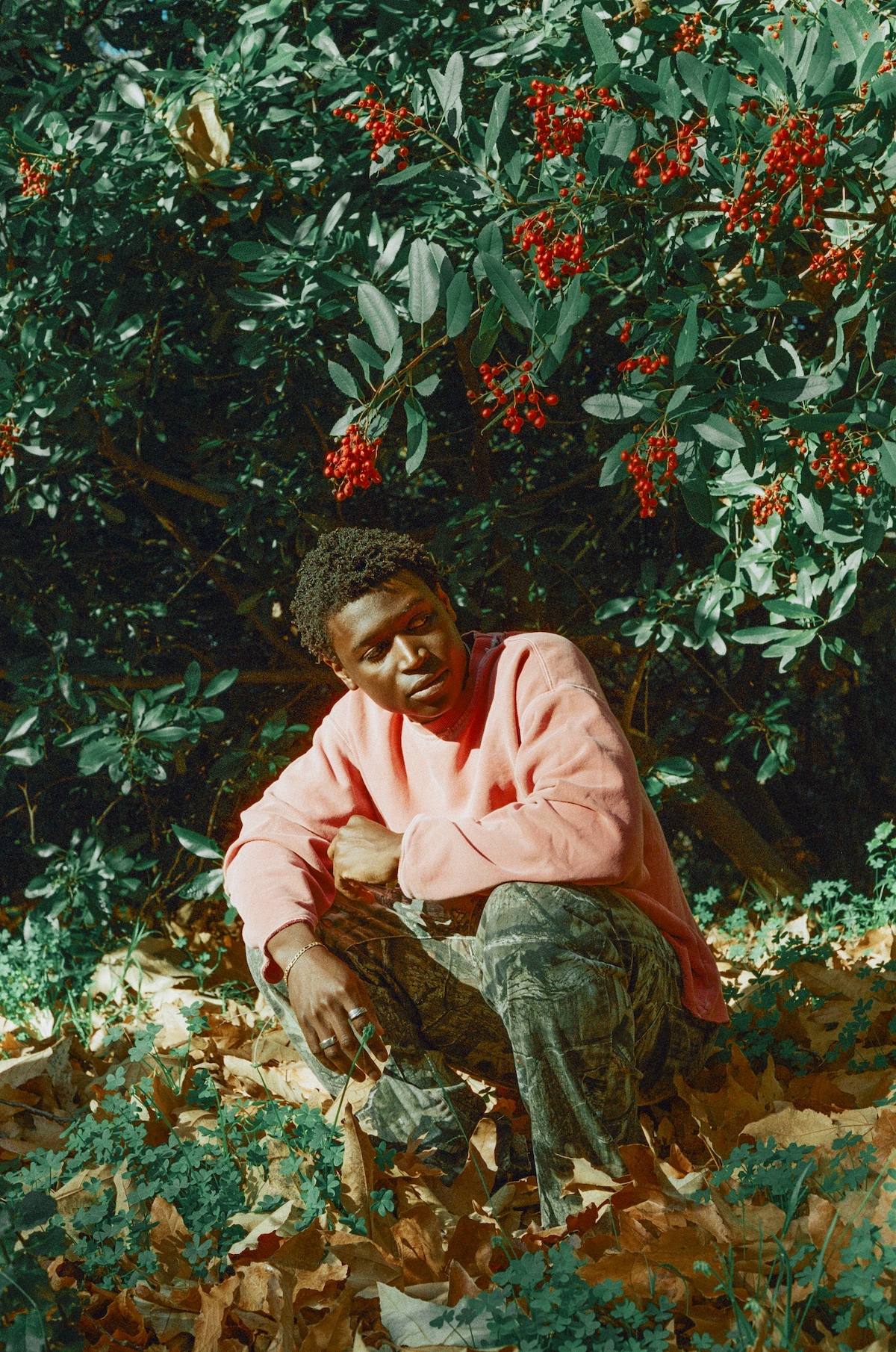
Born in Monrovia, Liberia during the First Liberian Civil War, the artist born Janjay is an open book in person, as in song. When he was 7 years old, he was rescued by missionaries and narrowly escaped the life of a child soldier during the Second Liberian Civil War. His adopted family relocated throughout North America over the course of his early years, spending time in Florida, Montana, and the Bahamas – but it was in Chattanooga, Tennessee, where he lives today, that he was exposed to, and fell in love with folk music, and where he began giving it his own ‘Afro Appalachian’ spin.
He uploaded his first song to SoundCloud in 2017 under the moniker Mon Rovîa – an honorific to his birthplace – and has been finding his voice and honing his sound ever since. 2020 saw the release of his EP Sunburnt, which began integrating folk instruments and musical themes into an alt-R&B landscape. His debut album Dark Continent followed in 2021, featuring a unique blend of hip-hop, trap, R&B, and folk.
And then, a shift occurred: 2022 saw the release of “Vulture Culture,” a tender folk-pop tune with close-miked vocals, a lush, lilting acoustic guitar pattern, and acoustic percussion – shakers and snares replaced the electronic drum kits of his previous work, and a whole world of possibility began opening up. Songs like “Where the Rivers Run” and “Borderline” followed, and Mon Rovîa’s transition into the folk music world was complete.
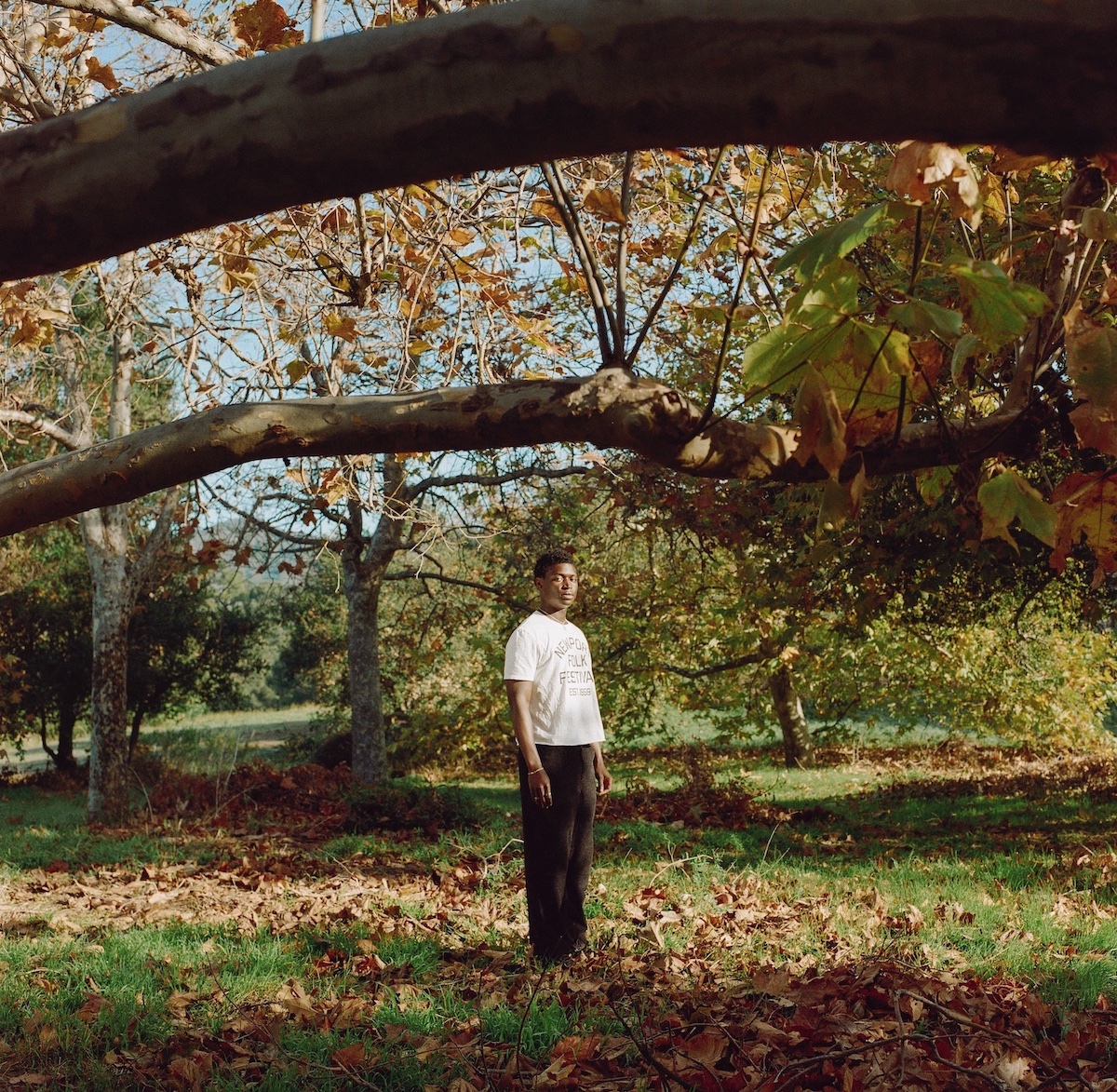
For Mon Rovîa, the past few years have been pivotal in terms of understanding why he makes music, and wholeheartedly leaning into that sense of purpose. “I think the biggest difference is that I’m now much more sure of what I’m trying to get across to the people,” he says, reflecting on his past and present selves. “I understand myself on a deeper level, and how I’m supposed to use my voice. This revelation has helped me to hone this craft and really develop my sound.”
For him, songwriting is not only an outlet for emotional self-expression, but a lens through which to view and connect with the world. “My music, in a nutshell, is a culmination of [my] experiences blended with the empathy I feel for the experiences of others,” Mon Rovîa tells Atwood Magazine. “The mission of my music is to heal with others – with every nation and tongue, in due time. Overall, my goal is to help my listeners find their peace.”
For the past two years, Mon Rovîa has been releasing a four-part series of EPs centered around the Hero’s Journey.
The project, much of which acts a reflection of his own life, began over a year ago with the July 2023 release of Act 1: The Wandering, which was followed by Act 2: Trials and Act 3: The Dying of Self.
“The aim is for the four parts to take the listener through the natural sequences of discovering their purpose,” he explains. “These four ‘Acts’ have been meant to serve as a peak into my story; a window into what’s next – and Act 4 will leave us at the door of the album that we’re currently working on.”
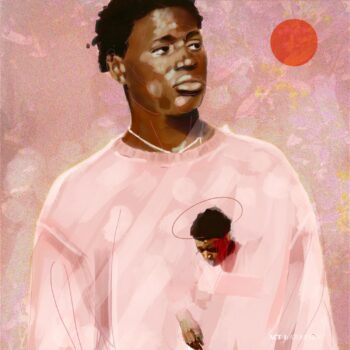
Mon Rovîa recently began rolling out Act 4: Atonement, the final chapter in his folk saga (set to release in January via his new label, Nettwerk Music Group). “It’s the moment of confrontation and reconciliation, where transformation begins through self-acceptance,” he shares. “It’s when you start integrating the wisdom you’ve gained along the way. Here, you lay down the burdens of guilt, finding both redemption and healing. And finally, it’s where you reconnect with the greater good.”
The EP begins with lead single “crooked the road.,” which Atwood Magazine previously called “a blanket of musical and emotional warmth ready to envelop our ears and comfort our restless souls.” Mon Rovîa describes it as a song for those who have fallen too in love with their pain. “I was in love with my suffering; it became who I knew myself as,” he says. Lyrics like “I know you’ve been unraveling” and “Now you find yourself here, past the do’s and don’ts of your choices” highlight the conflict within as he struggles, but ultimately finds the light in his life. “But if you’re leaving, know I’ll stay beside that telephone line. And tomorrow, we might steal the sun from underneath our eyes,” he sings, concluding on a hopeful note filled with light, love, and possibility.
Mon Rovîa recently released his EP’s second single, “Winter Wash 24,” another deeply personal song about confronting those uncomfortable truths we so often avoid.
“The song addresses the elephant in the room – the cognitive dissonance we experience in the West when we witness unimaginable horrors through our phones, yet feel helpless in our ability to make meaningful change. This sense of powerlessness can breed apathy,” he shares.
All proceeds of the new track go to the International Rescue Committee (IRC), the global humanitarian aid, relief, and development nongovernmental organization founded in 1933 at the request of Albert Einstein in response to the atrocities leading up to World War II. It’s a deeply personal partnership that speaks to Mon Rovîa’s core identity – his story, his mission, his very humanity.
“As someone born into conflict and rescued from war as a refugee, working with the IRC on this initiative holds deep personal significance,” he shares. “In these unprecedented times, it’s more important than ever to find better ways to care for and love our neighbors.” The lyrics of “Winter Wash 24” are themselves eye-opening, ending with the commitment to not turn a blind eye to the world, despite how easy it is to block out the noise and pretend everything is ok just because war isn’t at our doorstep:
Can’t sleep, Minova girl
Shaking from the night before
They took what’s hers
Innocence lost
She’s back to work
Bloodshed in cobalt red
Power the earth
Same moon, one little boy
Can’t play outside no more
Fears iron birds
Gunfire, the devil’s mirth
Tanks wade through iris fields
Revenge the curse
“‘Winter Wash 24’ reflects my journey from living in a personal ‘Kansas,’ where I focused on my dreams and avoided confronting painful parts of our world,” Mon Rovîa adds. “There was a time when my history felt like the dregs I wanted to leave behind, preferring the comfort and distractions around me. But over time, I realized the danger of forgetting what it means to be awake, to recognize our place in a world much bigger than ourselves.”
“The song captures the unsettling cognitive dissonance of modern life in the West – witnessing the horrors of war on our screens, only to be immediately distracted by a sports highlight or a meme. It’s a call to rise above desensitization and isolation, to see ourselves as both helpers and those in need of help.”
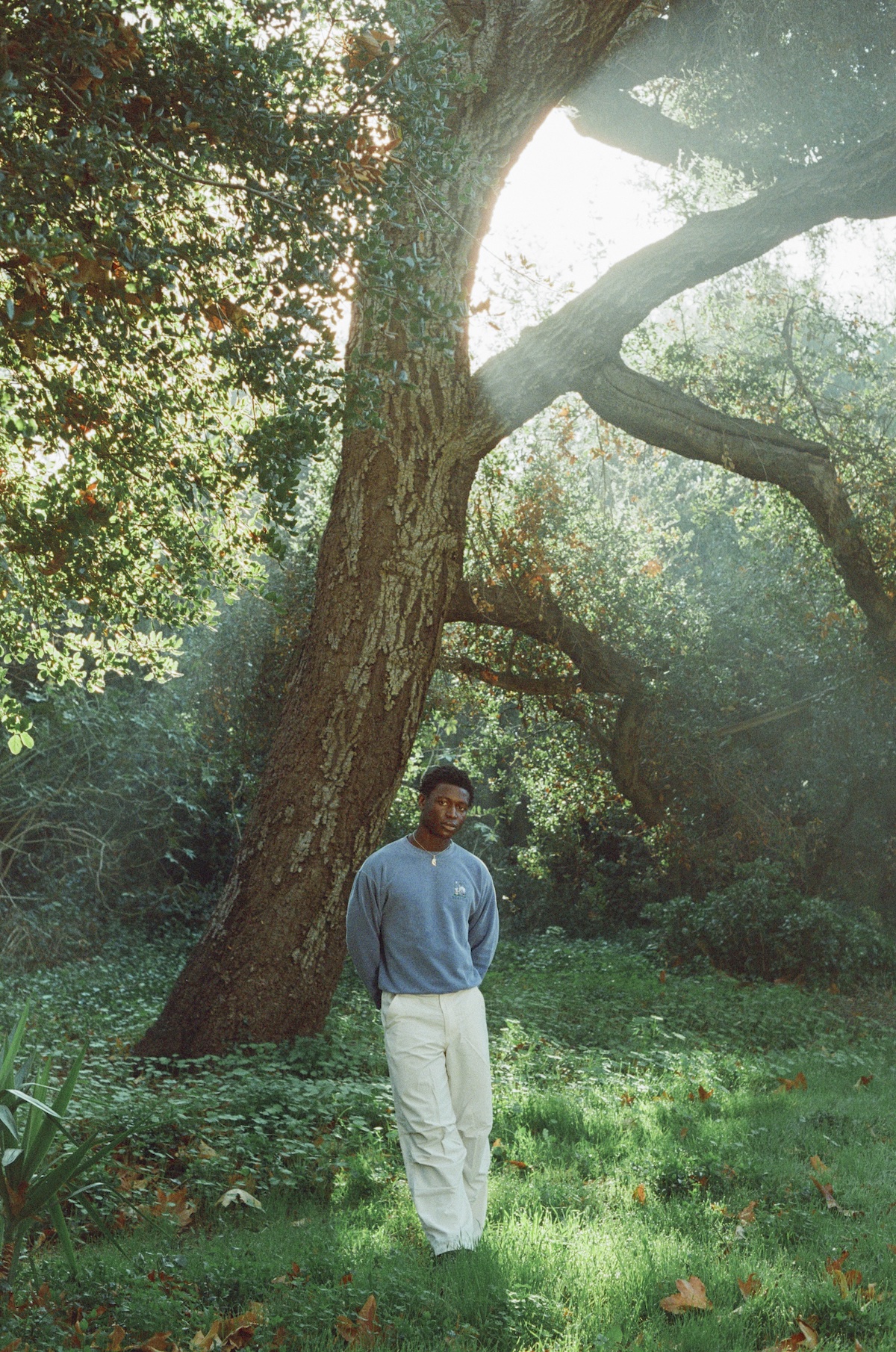
Mon Rovîa aims “to turn awareness into action and foster a deeper conversation about our responsibility to care for one another.”
We feel this directly in the last minute of “Winter Wash 24,” where he himself ‘wakes up’:
Now I’m spinning
Hands in the air
Standing there
Now I’m (I wash my hands)
Crying (I believe)
You’re almost there
(we can achieve good things)
Do you care (if you see you in me)
Do you stay aware (I wash my hands)
Do you care (I believe)
Do you stay aware (we can achieve)
(Good things if you see you in me)
One of our 2024 (and 2025) artists to watch, Mon Rovîa pours his full, unadulterated self into his art, fostering a space of love, light, and real connection, while inspiring others to do the same in their everyday lives.
Atwood Magazine recently caught up with the singer/songwriter to discuss the final Act of his four-part folk saga, his musical and personal growth over the past several years, and more. Get to know Mon Rovîa in our interview below, and listen to “crooked the road.” and “Winter Wash 24,” out now!
Act 4: Atonement will release January 10, 2025 via Nettwerk Music Group.
— —
:: stream/purchase Winter Wash 24 here ::
:: stream/purchase crooked the road. here ::
:: connect with Mon Rovîa here ::
— —
Stream: “Winter Wash 24” – Mon Rovîa
A CONVERSATION WITH MON ROVÎA
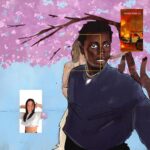
Atwood Magazine: Great to meet you, Mon Rovîa! For those just discovering you for the first time, who is Mon Rovîa? What should people know about you and your music, right off the bat?
Mon Rovîa: Hello! Happy to be here. I’m Mon, born in Mon Rovia, Liberia. My life can be summed up by being born into a civil war, escaping the life of a child soldier, rescued by the hands of missionaries. I spent a lot of my developmental years living in a variety of places, while simultaneously going through a variety of life experiences.
My music, in a nutshell, is a culmination of these experiences blended with the empathy I feel for the experiences of others. The mission of my music is to heal with others – with every nation and tongue, in due time. Overall, my goal is to help my listeners find their peace.
You call your musical style “Afro Appalachian.” Can you share a bit about what that means to you, and what that sounds like in practice? What drove you to this sound?
Mon Rovîa: A lot of my influence has been passed down generationally, and my music is meant to sound like an echo of the past. Being from Africa, and now living in the mountains of Appalachia, my music sits at an intersection of African and Appalachian sounds. I aim to help carry the history of the Africans who came over with some of the vital instruments that are now heavily integrated into the folk world.
You’ve spent the past four years releasing a consistent stream of songs and EPs (and from a personal standpoint, it’s been so enjoyable to hear you develop your style and evolve your sound over that time); it’s safe to say much has changed since songs like “Who Will Help the Youth Grow Old?” and your first record, ‘Dark Continent.’ How do you feel you’ve grown and developed as an artist since your start?
Mon Rovîa: Thank you for saying that. I think the biggest difference is that I’m now much more sure of what I’m trying to get across to the people. I understand myself on a deeper level, and how I’m supposed to use my voice. This revelation has helped me to hone this craft and really develop my sound.
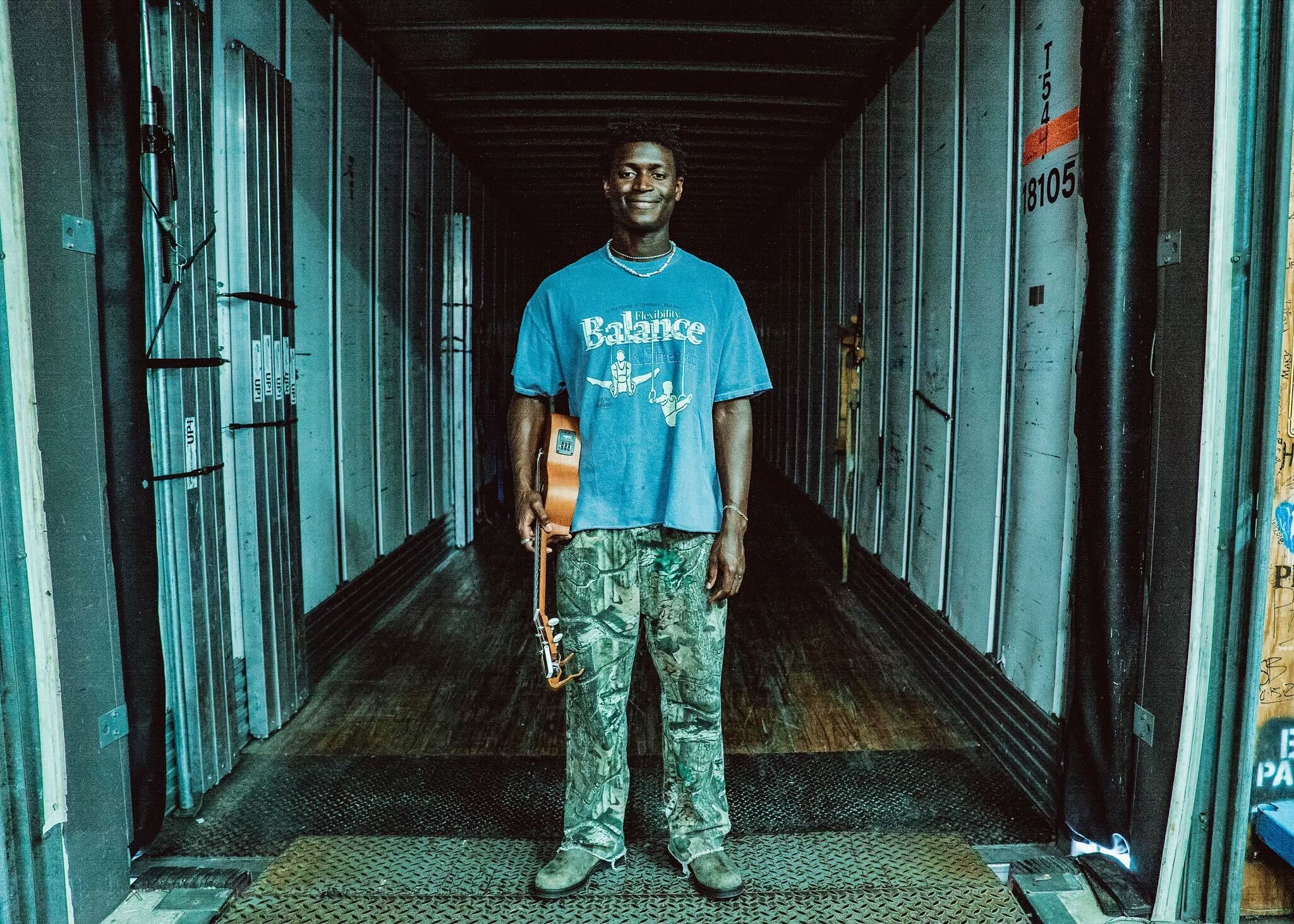
Likewise, you seem to have found success building communities on social media platforms like TikTok and Instagram; I know I get served your content all the time, and it really does feel like I’m getting a behind the scenes look into your world, and your music. How have you navigated these virtual landscapes, while staying true not just to yourself, but to your music as well?
Mon Rovîa: I’m always trying to be honest, and genuine online. The biggest hurdle was figuring out how to not let ego and the algorithm hurt my feelings when things don’t go my way. Consistency, and having a good team behind me really helps to push my content and reach more people.
Since January of last year, you’ve been steadily unveiling music into 3, 4, and 5-track ‘Acts’: The Wandering, Trials, and most recently, The Dying of Self. What’s the story behind these records? What are their through-lines?
Mon Rovîa: The Acts are about The Hero’s Journey, and the aim is for the four parts to take the listener through the natural sequences of discovering their purpose.
These 4 ‘Acts’ have been meant to serve as a peak into my story; a window into what’s next – and Act 4 will leave us at the door of the album that we’re currently working on.
You most recently released ‘Act 3: The Dying of Self’ in April. What does that title mean, and how does it speak to the music within?
Mon Rovîa: “The Dying of Self” is one of the most crucial parts of The Hero’s Journey. The Dying of Self is about overcoming and killing your ego. I think that as an artist, (or anyone with a platform) killing the ego is truly the hardest part of the journey. Realizing you’re supposed to be lower, I guess, than anyone else when speaking to people on a mass level is what really puts everything into perspective.
Overall, this most recent act release (Act 3) is a little more brooding in a way, and deals a lot with loss. It’s my “belly of the whale” moment.
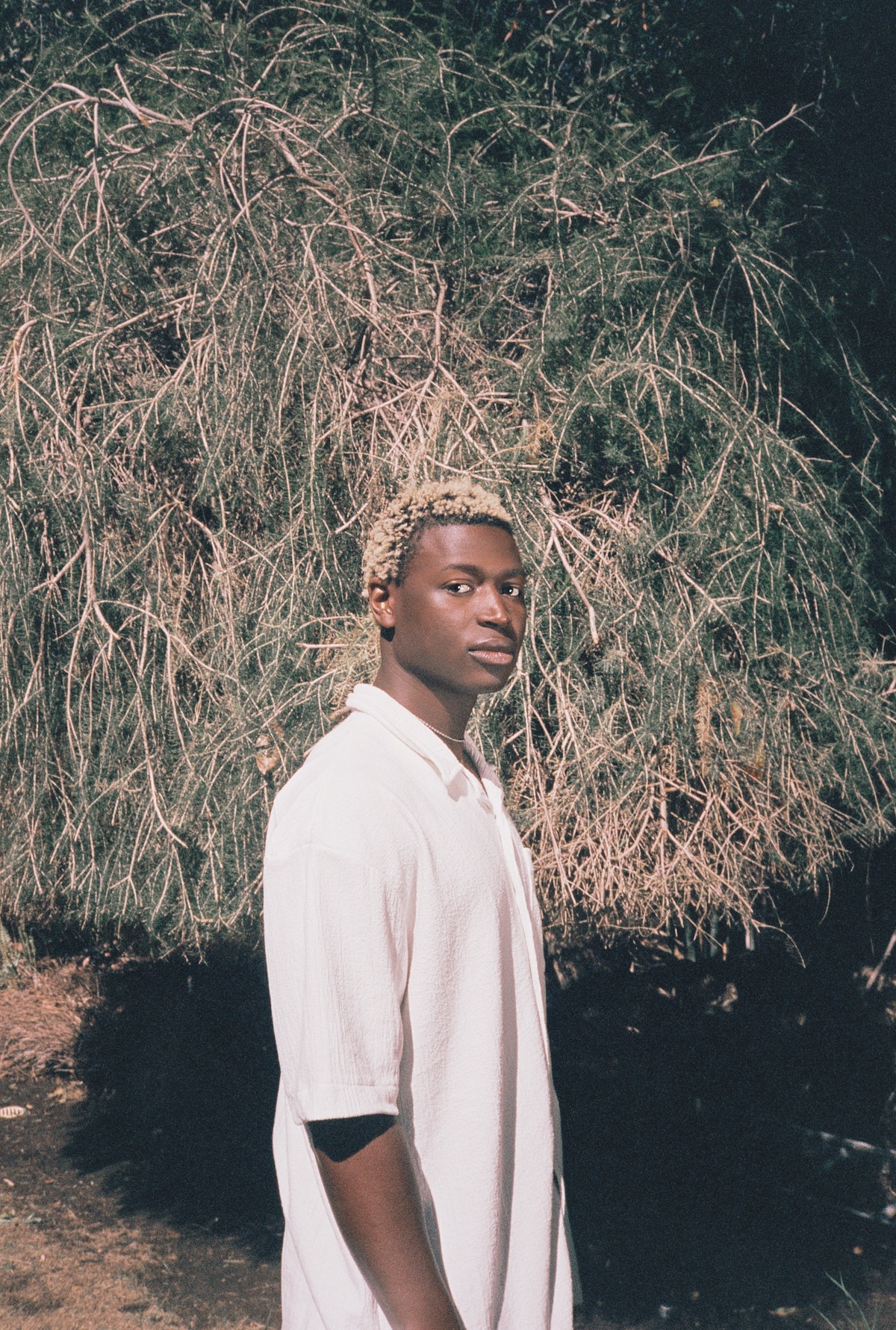
This brings us to “crooked the road!” I find this song truly beautiful. What was the inspiration behind this track?
Mon Rovîa: Thank you! I’m so happy you like it. The track is about not falling in love with your own pain, and noticing the hands that have been extended towards you to help. It’s the first single off my last act, Act 4.
One of my favorites lines is, “But if you’re leaving, know I’ll stay beside that telephone line, and tomorrow we might steal the sun from underneath our eyes.” There’s something especially romantic about this sentiment; can you share a bit about your approach to these lyrics, and what you were hoping to express in them?
Mon Rovîa: My co-writer (and my keys/bass player) Sam Hudgens brough this concept to me, and we really wrote the song around these lyrics.
The sentiment of romance has to do with the hope a person must have when they love someone who is away, for some reason, literally or figuratively. This lyric is really about one person in a partnership leaving, and the other tirelessly waiting and hoping for their return, regardless of the situation. This patience and hope comes from unconditional love.
To me, the lyric “and tomorrow we might steal the sun from underneath our eyes” is one of the most important parts of this song. The weariness of the eyes, the exhaustion, the tears, dark circles – the pain hidden underneath – regardless of all this, the sun is still close by. That lifting of the eyes again, to the sun, to the light, is the hopeful part of the song.
Finding the sun again; putting the light back into your perception of the world you see, is possible, and that’s what the song is trying to convey.
You really reach catharsis at the end, singing, “Day breaks sorrow and I still feel the edge of this cold knife, but next to you I laid softly on this hard ground.” There’s something so tender, so vulnerable about this expression of support and sacrifice. What inspired this in you? What are your personal takeaways from this finale?
Mon Rovîa: My personal takeaway is that every single day there’s an opportunity, and making it to that day is so important. The other sad truth, as well, is that making it through one hardship triumphantly, doesn’t mean that person won’t face these trials (or others similar) again. Just because we come back from one thing, doesn’t mean we won’t face again some of the pains and losses of life.
The tender tension that lies in the song really comes from that sentiment. There is hope and betterment everywhere, but you may always have challenges that come back, regardless of the growth and good you do find.
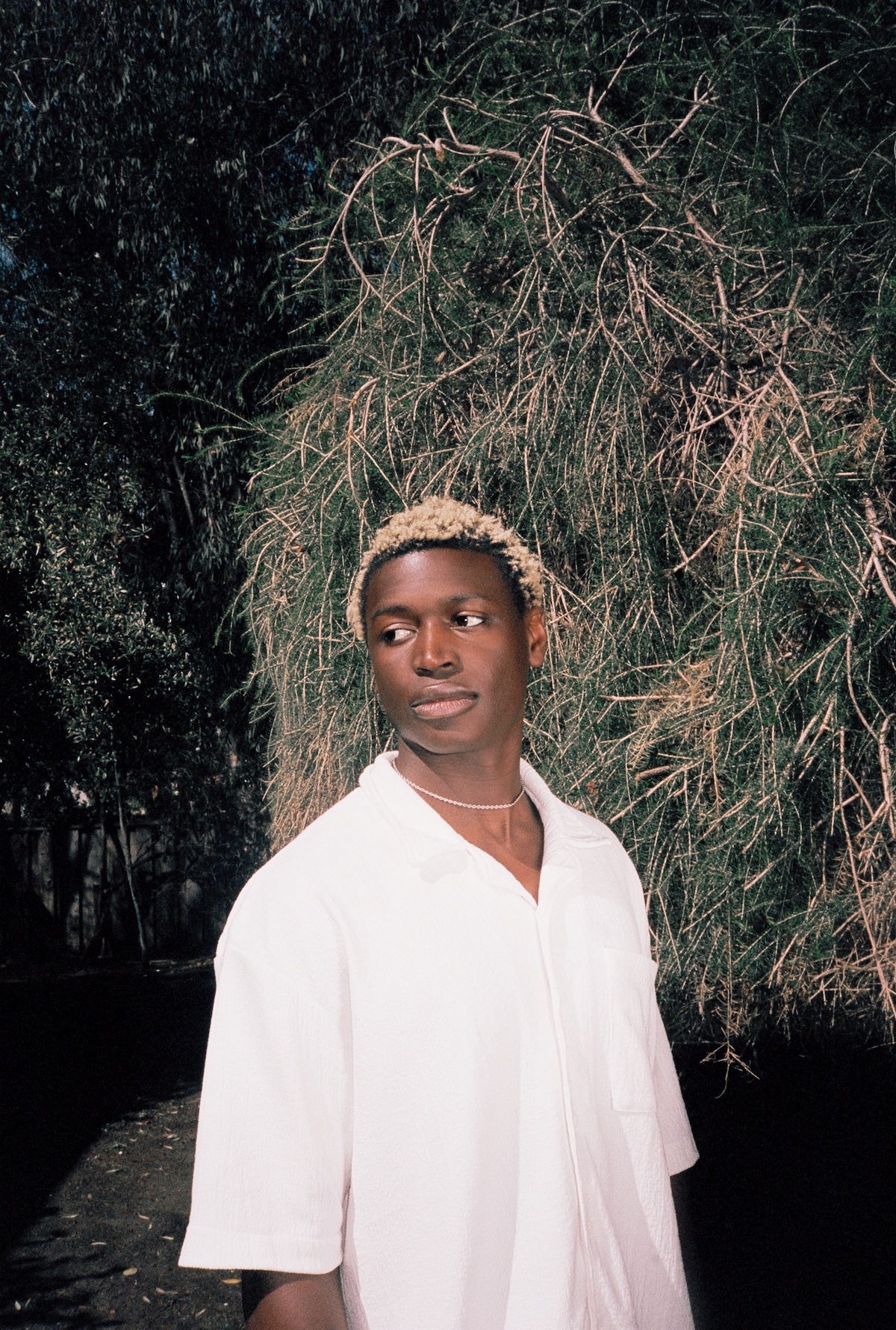
My personal takeaway is that every single day there’s an opportunity, and making it to that day is so important.
What originally inspired your latest single, “Winter Wash 24”? Where did this track come from, and what’s the story behind this song for you now; how does it continue to resonate today?
Mon Rovîa: “Winter Wash 24” was born out of the overwhelming sense of isolation and helplessness many of us feel as we witness the horrors of war unfold on our phones, only to be followed by something trivial like a sports clip or a funny meme. That jarring contrast, often referred to as cognitive dissonance, is an intense, unspoken reality in the West. This song is a response to that desensitization – a reminder to love our neighbors despite.
All proceeds from “Winter Wash 24” will go to the International Rescue Committee (IRC), and I hope to spark an ongoing conversation through the track that not only raises awareness but also amplifies support for the cause.
What are your favorite lines or moments from this song?
Mon Rovîa: What I like about this song is how the beat feels like a march. It’s a calming song, but still carries a pace you can run to.
These new songs are taken off your forthcoming EP, Act 4: Atonement. What does “atonement” mean to you, and what is the significance of this upcoming EP?
Mon Rovîa: Atonement is the final chapter in my four-part folk saga. It’s the moment of confrontation and reconciliation, where transformation begins through self-acceptance. It’s when you start integrating the wisdom you’ve gained along the way. Here, you lay down the burdens of guilt, finding both redemption and healing. And finally, it’s where you reconnect with the greater good.
This last act brings you to the doorstep of what’s to come.
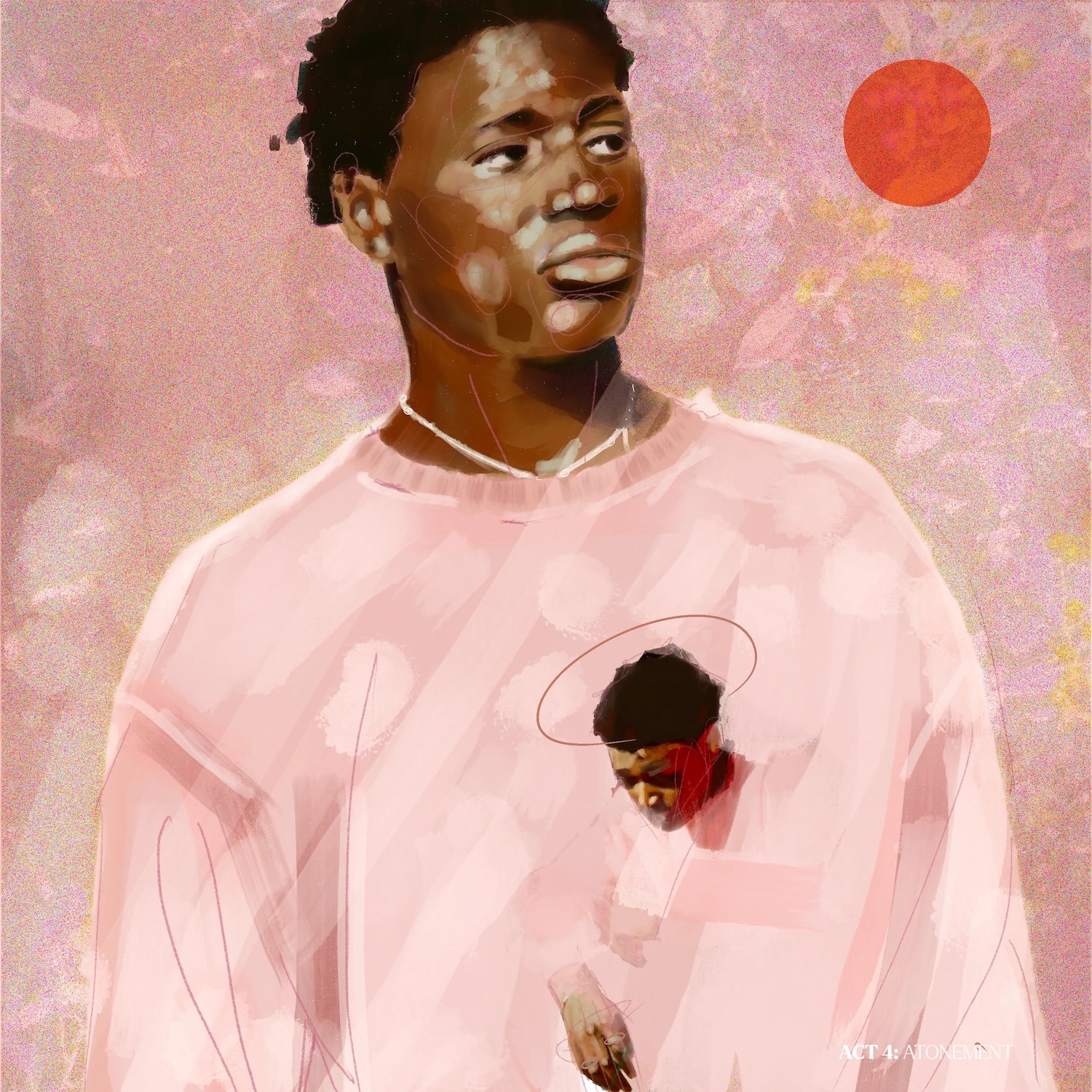
You’re now heading out on a North American headline tour this fall. What excites you about getting back out on the road? Any cities you’re particularly jazzed about playing this time around?
Mon Rovîa: I’m so excited for this run, and to be back on the road! Exploring the country this way is super fun, and I love reaching new places I haven’t been.
I’m particularly excited to play Seattle, WA this time around. We played at Madame Lou’s earlier this summer in June, and it’s now a favorite place. It’s really cool to see the growth happen in real time, and us now selling out the top floor at The Crocodile.
Meeting fans is the best part, and I really love singing with the crowds and hearing stories.
For so many of us musicians, playing live is our first love (I know it is for me). What can fans expect from a Mon Rovîa live show?
Mon Rovîa: The shows act as a place of peace, while simultaneously being a place of stirring. I hope my shows help fans face emotions that they may not always let through. We hold space for all of it.
A fan can expect to run into the kindest people at my shows – fans from of all walks of life – different ages, races, genders, etc. Regardless of our differences, everyone feeling very together, makes it a place of oneness.
Which song or songs are you most looking forward to translating from the studio into the live context?
Mon Rovîa: Actually, it’s an unreleased song called “Rust”! Release will be later this year. Seeing fans take to it so easily and quickly already has been incredibly inspiring and cool.
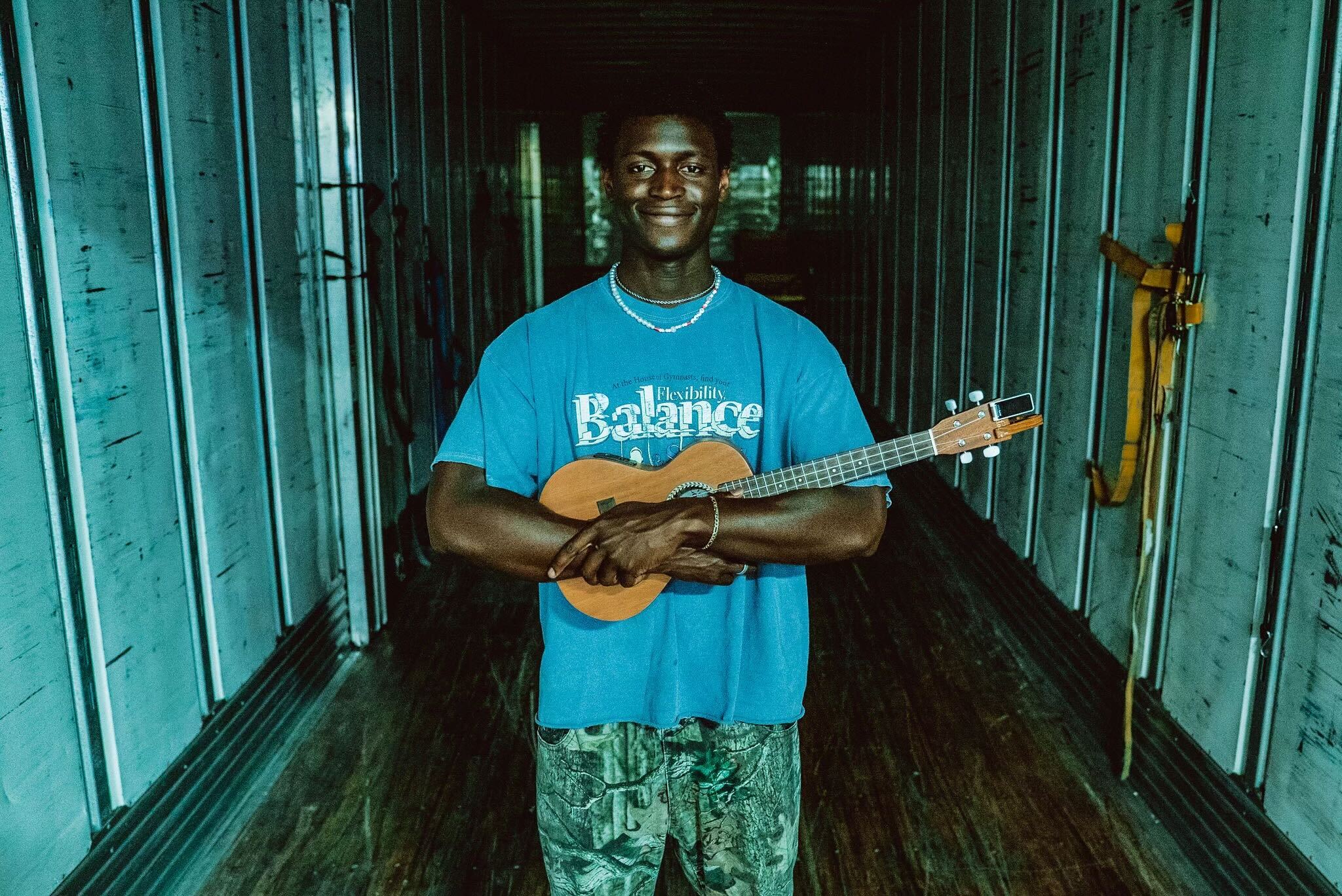
We’ve dived into the music so much, so to get light for a minute, what is one of your fun facts that fans and listeners might be surprised to learn about you?
Mon Rovîa: I’m quiet, and I really enjoy spending time alone and reading. Also – I play a ton of soccer.
In the spirit of paying it forward, who are you listening to these days that you would recommend to our readers?
Mon Rovîa: Definitely The Halfway Kid (London-based, originally from Sudan – he’s amazing, makes such fun and uplifting music). Other favorites are Tish Melton, Clover County, Ruby Gill – and like many others, I’m the biggest fan of Adrianne Lenker.
— —
:: stream/purchase Winter Wash 24 here ::
:: stream/purchase crooked the road. here ::
:: connect with Mon Rovîa here ::
— —
Stream: “Winter Wash 24” – Mon Rovîa
— — — —
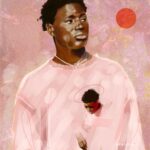
Connect to Mon Rovîa on
Facebook, Twitter, TikTok, Instagram
Discover new music on Atwood Magazine
© Glenn Ross
:: Stream Mon Rovîa ::

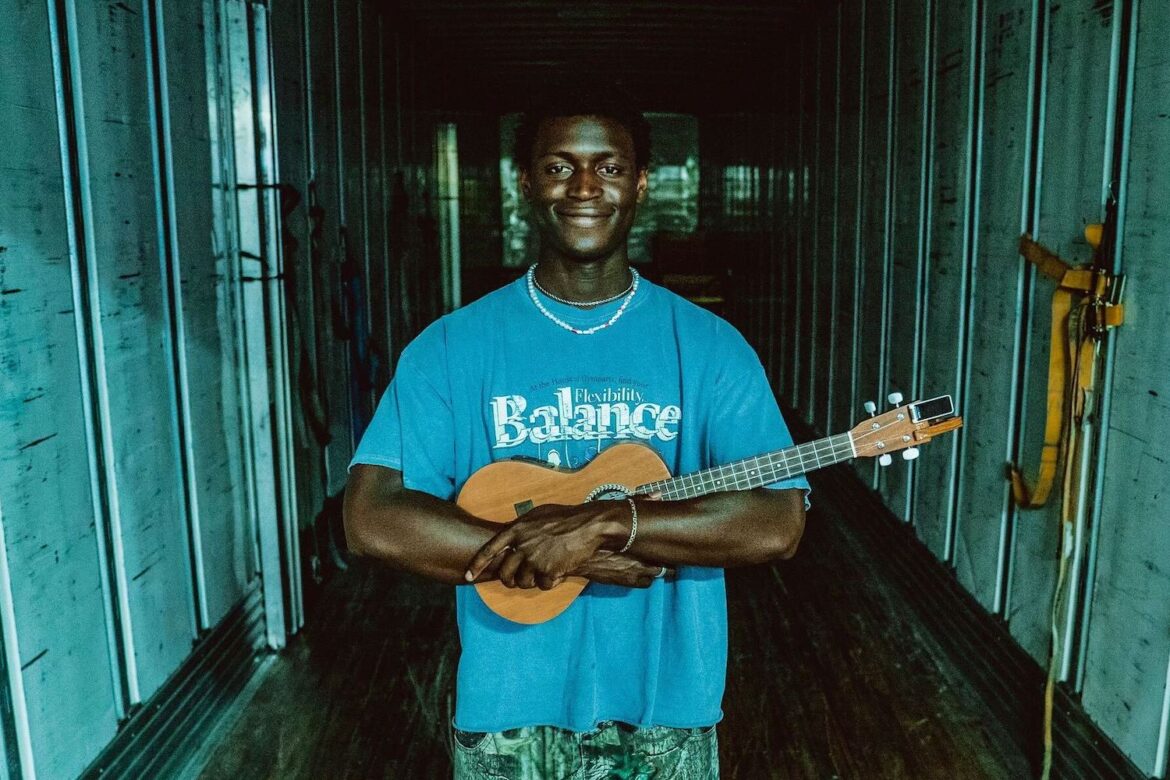
 © Glenn Ross
© Glenn Ross